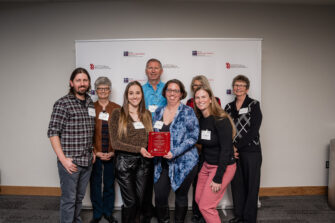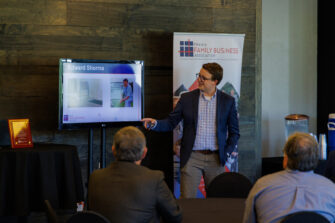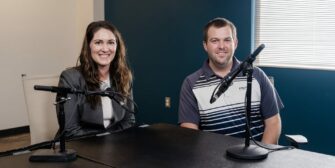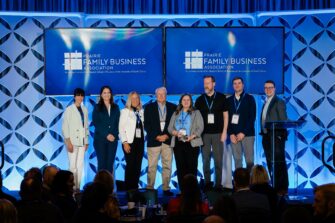Three Family Businesses Honored with Awards From Prairie Family Business Association
Recent News
A sixth-generation owner of one of the nation’s oldest family businesses will help other families as they look to the future at an upcoming retreat.
Kevin Hancock is the CEO of Hancock Lumber Co., a 620-person company established in 1848.
Hancock Lumber operates 12 lumberyards, three sawmills and a truss manufacturing facility in Maine and New Hampshire. The company also grows and harvests trees sustainably on 8,000 acres of timberland.
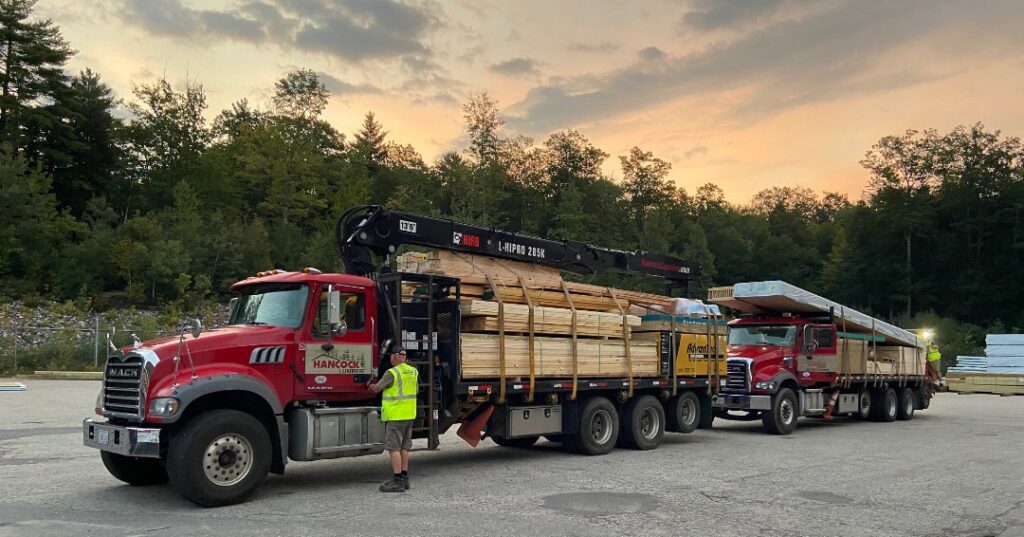
Hancock Lumber is an eight-time consecutive recipient of the Best Places to Work in Maine award. The company is also a recipient of the Maine Family Business of the Year Award, the Governor’s Award for Business Excellence and the ProSales National Dealer of the Year Award.
Kevin Hancock is the author of three books:
- “Not For Sale: Finding Center in the Land of Crazy Horse.”
- “The Seventh Power: One CEO’s Journey Into the Business of Shared Leadership.”
- “48 Whispers from Pine Ridge and the Northern Plains.”
He will speak at the annual Prairie Family Business Association’s Next Gen Retreat, which will be Oct. 6-7 in Deadwood.
“This retreat is one that many family businesses have said has added the most value in ensuring smooth transitions between generations,” said Stephanie Larscheid, executive director of the Prairie Family Business Association.
“It is designed to empower, engage and enthuse the next generation of family business leadership, and Kevin Hancock sharing his own multigenerational business story is going to add significant value for everyone who attends.”
We spoke with Hancock about his family business experience and message for others.
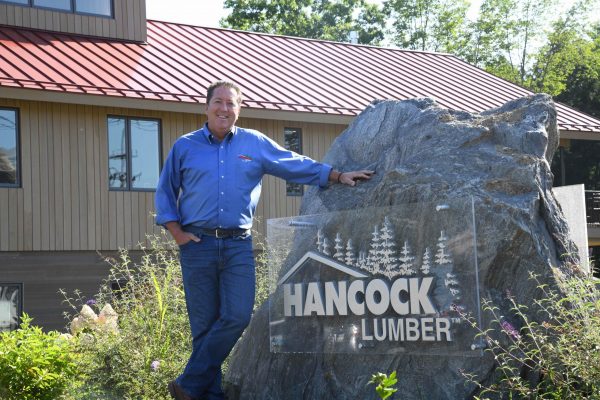
By the time a family business reaches its sixth generation, it might be assumed there always will be family in the business. Was it always your plan to join Hancock, and what ultimately made you decide to become part of the company?
Growing up, I never actually contemplated joining the family business. As odd as it may sound, it never really crossed my mind. After college, I pursued a career teaching and coaching, and then some years later, I enrolled to attend law school. That summer, only weeks before school was scheduled to begin, my dad — then the president of the company — was diagnosed with cancer. At the last minute, I changed my mind and came to work for the company. That was 31 years ago this month, and here I am!
It’s hard to say what ultimately made me decide to become part of the company. I think it was respect for the history, tradition and values of the family business, but at the time it was just a reaction, and I didn’t really see it at the time as a huge deal. It’s just the path I took. Hindsight is always clearer. At the time, I just decided to give the company a try!
Six generations also offer plenty of opportunities to learn best practices in succession. What do you credit most for being able to achieve that many generational transitions?
Great question. First, I would say good fortune. We have been in an excellent industry whose demand is still strong today. Second, our family has always had respect for the business beyond just what it can do for the family. We see the business as having its own life with many beneficiaries. Third, we have stayed focused on both the operations of the business and the harmony of the family. We have always allowed family flexibility across time for family members that would prefer liquidity and the ability to channel their talents and aspirations into other endeavors.
You also have a unique connection to South Dakota in that you are a frequent visitor to the Pine Ridge Indian Reservation and are the founder of the nonprofit The Seventh Power, which is dedicated to advancing economic sovereignty for native communities across America. What draws you to these communities and how has your experience on Pine Ridge influenced you?
Many factors have kept me closely connected to Pine Ridge. I have been very interested in new leadership models that disperse power rather than collect it. Also, I believe indigenous communities have a understanding about nature and living in rhythm of nature’s rules that can be of great benefit to humanity in the future.
I am all about giving voice to those who have not historically been heard — be it within a lumber company or a remote Indian reservation.
How has your own personal journey in recovery influenced you as a CEO? Are there things you’ve learned that could be valuable for other leaders?
In 2010, I acquired a rare neurological voice disorder that at the time made speaking very difficult. I suddenly had to lead without speaking much. In 2012, I began traveling to the Pine Ridge Indian Reservation. There, I encountered an entire community that did not feel fully heard. The combination of both experiences sent me down the track of a new leadership model that dispersed power, shared leadership and strengthened the voices of others.
What are some of the themes you’ll be addressing at the Next Gen Retreat?
At the conference, I will be sharing the above story and then discussing how we went about becoming an employee-centric company in which the first priority of the business became the experience of the people who worked there. The goal is to help all employees, as human beings first, feel trusted, respected, valued and heard.
Another challenge family business face regardless of transition stage is workforce, which is a topic you frequently address. Are there some common strategies businesses can use to strengthen employee retention and engagement?
Yes – this is precisely what my talk is about! I look forward to meeting everyone!
About the Next Gen Retreat
Is your family considering the Next Gen Retreat?
Darcy Burner Christenson, who attended with her two brothers to talk about planning for the future of their Sioux City business, Triview Quality Communications, said it was so beneficial her family plans to return annually.
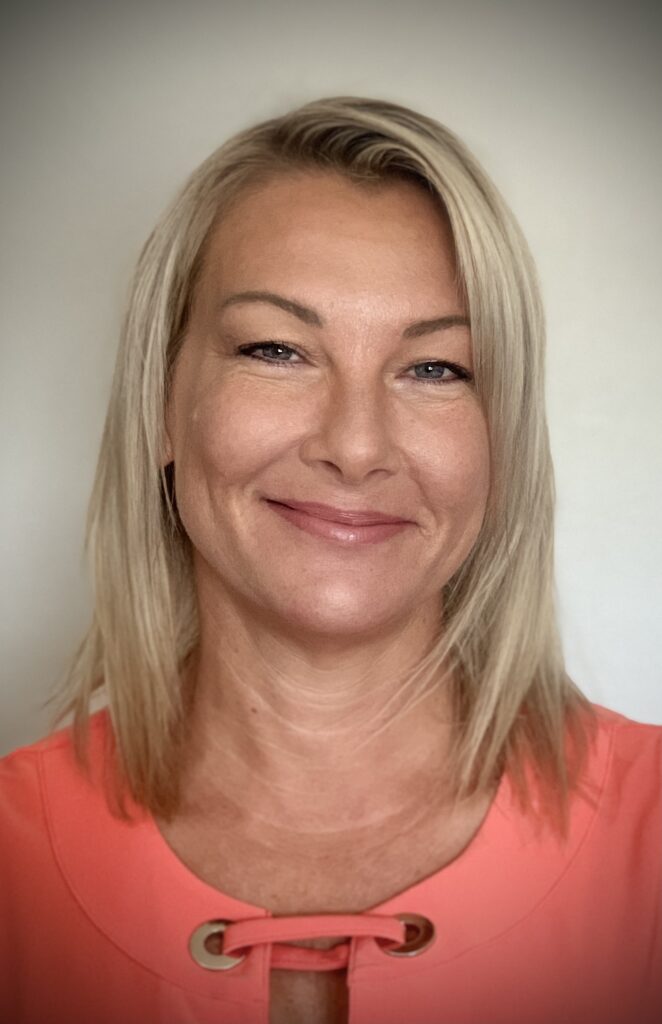
“We get so busy in the day-to-day activities of running a business, that we don’t take the time for us as second generation owners to work on ourselves together as a group. We learn new ideas not only from the speakers but also from the other next generation family members that are attending the retreat,” she said.
“It has helped us to sharpen our leadership skills and to uncover any problems that are lurking up so we can get ahead of any arising issues. The friendships we have made with the others attending is priceless. It’s so powerful to have that like-minded relationship where we can call each other after the retreat is over to discuss any topics concerning our businesses. This will be our third Next Gen Retreat that we are attending and we plan on going to every single one offered going forward. ”
To learn more and get connected to the Next Gen Retreat, click here.

